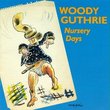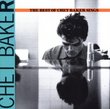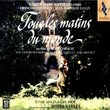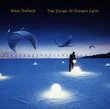| All Artists: Dmitry Shostakovich, Yevgeny Mravinsky, Leningrad Philharmonic Orchestra Title: Shostakovich: Symphony No. 5 Members Wishing: 0 Total Copies: 0 Label: Erato Release Date: 4/7/1992 Genre: Classical Styles: Historical Periods, Modern, 20th, & 21st Century, Symphonies Number of Discs: 1 SwapaCD Credits: 1 UPC: 022924575228 |
Search - Dmitry Shostakovich, Yevgeny Mravinsky, Leningrad Philharmonic Orchestra :: Shostakovich: Symphony No. 5
 | Dmitry Shostakovich, Yevgeny Mravinsky, Leningrad Philharmonic Orchestra Shostakovich: Symphony No. 5 Genre: Classical
|
Larger Image |
CD DetailsSimilarly Requested CDs
|
CD ReviewsAn exceptionally strong interpretation Call Me Ludwig | San Diego, CA United States | 07/05/2002 (5 out of 5 stars) "At a recent performance of the Shostakovich Symphony No. 5, the person in the next seat turned to me and asked, dismissively, why the Fifth was the most popular of Shostakovich's symphonies. Perhaps had he listened to Mvravinsky's interpretation, he would have understood why.There is an excitement about this performance that announces itself from the beginning. In typical Russian style, Mravinsky gives the work plenty of breathing space (in contrast to the famed Bernstein interpretation), which allows the colors and textures of this work to emerge. In lesser hands, the symphony would fall apart with such spaciousness, but Mravinsky holds the orchestra's attention (perhaps despotically, but nevertheless effectively), and hence ours, throughout the work.The highlight of this performance is clearly the fourth movement, the Allegro Non Troppo. The first half is probably more allegro than non troppo, but he establishes a clear drive that adds weight to the second half of this monumental movement, which is slower but much more assured than typical. In particular, he achieves some dramatic phrasing, as when the main theme is reintroduced (with the snare drum behind it). His handling of the fugue element that follows is gorgeous, with shades of wind ensemble sound, and the chromatic chords that follow. The ending is much slower and broader than normal, but the weight and power he brings to it is a revelation; it makes faster interpretations seem deprived, rushed, missing something important." Mravinsky, the original interpreter of Shostakovich R. Hutchinson | a world ruled by fossil fuels and fossil minds | 10/09/2003 (4 out of 5 stars) "There is something extraordinary about hearing Mravinsky conduct Shostakovich -- beyond the fact that he was the original conductor of many of the symphonies, I can't get over the realization that *this is the way Shostakovich first heard his own works*. The first performance of the 5th Symphony was by the Leningrad Philharmonic, Mravinsky conducting, on November 21st, 1937. It was met with a prolonged standing ovation, and there are those who believe it was only this popular acclaim that saved Shostakovich. He wrote it after withdrawing the phenomenal 4th at a time when he was under attack by the regime for his "modernist, formalist" tendencies. So the 5th was his attempt at rehabilitation, and the subtitle was "a Soviet artist's answer to justified criticism." In retrospect, it seems that Shostakovich was unrepentant and that his answer was a work that spoke ("to those with ears to hear") plainly of the horrors of Stalin's regime. But Stalin and & Co. apparently chose to project all the grotesquerie and evil in the music onto Hitler and interpret the finale, a triumph of evil power, as Soviet heroism. The music of Shostakovich's 5th, as well as its social context, make it one of the great works of the 20th century. Shostakovich afficionados view recordings by Mravinsky as being in a class of their own given his role in establishing the interpretations in the Soviet Union. Unfortunately these recordings are mainly obscure and difficult to locate (see the dschjournal online for information). This recording is from Mravinsky's last years -- April 4th, 1984, four years before his death. I have read that Mravinsky's interpretations tended not to change much over time, and so it seems we can hear an echo of what Shostakovich first heard even with this recording from nine years after DSCH's death. It is a superb performance -- the strings and horns of Leningrad especially. The live recording from the Leningrad Philharmonic Large Hall is interrupted frequently, though, by loud coughing. That is one reason for the 4 star rating. The other reason is that I have heard a more powerful performance, for which I reserve my 5th star. Rostropovich recorded the 5th in 1983 with the National Symphony Orchestra of Washington D.C. for DG, and he captures the tragedy and the terror in a way unparalleled by any other version I have heard (see my review). Mravinsky takes the 5th at a brisk tempo. Clearly Bernstein was influenced by this. Rostropovich gains emotional power throughout by slowing down the tempo. Mravinsky just storms the allegro non troppo -- at first it struck me as far too fast, but I had to keep in mind this is the original interpretation! A crucial difference between Mravinsky and Bernstein emerges in the finale, though, one that makes all the difference in the world -- Mravinsky slows the tempo at the end, making clear that the triumph is hollow. Rostropovich takes it even slower, and with great force. Bernstein, though, rushes right through, missing the tragic element entirely. This is not an ideal recording, but if you are a serious Shostakovich devotee it is essential until a superior, earlier Mravinsky recording becomes available. This recording was reissued in 2006 by Elatus, paired with a recording of Shostakovich's 6th Symphony, conducted by Rostropovich. " Troubled waters Wayne A. | Belfast, Northern Ireland | 07/14/2005 (3 out of 5 stars) "Just a note for folks who may be looking at choices for this symphony. The sound of this recording--a live one--is less than par with plenty of coughing. The orchestra makes a fair number of flubs. That alone hardly makes for a huge problem. The real issue here is if this performance is all that it's alleged to be. Personally, just my opinion mind you, I find it forced and a tad shallow. Mravinsky may have premiered many works but that doesn't immediately make him the best interpreter of the music--keeping in mind the convoluted cultural politics of Soviet Russia. He may have just been the best man available at the moment.
Honestly, I'd had a tough time finding the right performance of this for myself until someone decided to throw me a spitball and force the Ormandy version on me. It won, easily. What particularly impressed me was his restraint--he let's the music speak for itself--and the eerie magic he conveys, correctly I feel, during the end of the first movement. There's a point there--and many who know and love this symphony will know exactly what I'm talking about--where a chill should run down your spine. It's subtle and Mravinsky rolls over it like it isn't there. In the Ormandy performance it's to me one of the great moments in recorded music. It may seem strange to focus on one detail in a work but sometimes a small section of a large piece, like the prelude to Act III of Wagner's Siegfried, or the dissonant horns in the development of the first movement of Beethoven's Eighth, can be the key to sensing if the conductor truly, deeply, clearly, understands the music he or she's recreating. The Wagner prelude sums up all that's come before it, from the first notes of Rheingold on, and represents the point in the cycle where the entire universe shifts on its axis. It's amazing how many conductors play it as if it's just another orchestral prelude--busy-work while they prepare to raise the curtain--and so far as I've found only Solti gets it right. Those Beethoven dissonances are bursts of sparkling chaos by a battered genius at the very top of his skills--to bury them is to deny Beethoven's spirit and frankly that's a criminal offense. Listen to Harnoncourt and feel the delirious joy. To reach the end of Shostakovich's first movement and not, for a harrowing moment, feel, in the worst way, ice cold Death pass by your cheek, is to miss the essence of this great symphony entirely. Ormandy nails it. I get the impression Mravinsky never even knew the reaper was in the room." |

 Track Listings (4) - Disc #1
Track Listings (4) - Disc #1




![Seussical [2000 Original Broadway Cast]](https://nationalbookswap.com/cd//m/02/4802/514802.jpg)



